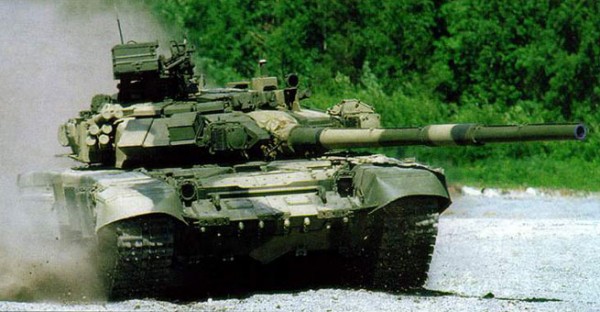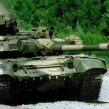
The Curious Case of the Silent Russian Generals
Publication: Eurasia Daily Monitor Volume: 9 Issue: 36
By:

Army-General Nikolai Makarov, the Chief of the Russian General Staff launched an apparently scathing attack on the domestic defense industry. His comments were offered in two parts over a fortnight, provoking public controversy with the Deputy Prime Minister Dmitry Rogozin (EDM, February 16). However, as the Russian media focused on Makarov’s statements, it appears to have missed an important point. Like the Sherlock Holmes story, The Curious Incident of the Dog in the Night-Time, no other general supported the views offered by the Chief of the General Staff; their silence is deafening (Interfax, February 14).
Makarov began his demarche on January 28, while addressing the Academy of Military Sciences. The audience included Rogozin, Deputy Foreign Minister Sergei Ryabkov, and the Chief of the General Staff of the Belarusian Armed Forces, Lieutenant-General Pyotr Tikhonovsky, as well as senior Russian military officials. Makarov reminded his audience that the means and methods of modern warfare have fundamentally shifted away from familiar theaters to the “space and information spheres, including into cyber security,” emphasizing the fact that network-centric doctrine in foreign militaries has become an important area of study for the General Staff. Its implications, in terms of introducing such approaches in Russia, would be to reduce the size of the Armed Forces and increase the level of high-tech weaponry. Makarov called on this process to be fully supported by military science and the defense industry (https://nvo.ng.ru/realty/2012-02-17/1_reform.html, February 17; Interfax, January 28).
On February 14, Makarov elaborated on the implications of adopting new approaches to warfare for the defense industry, procurement and military modernization. Noting the overall priority assigned to modernizing the nuclear deterrent, and expressing concern that any countermeasures taken in response to the US and NATO missile defense plans could add to the financial burden on the state, as well as plans to modernize the Navy, Makarov highlighted the plight of the Ground Forces. “We are having a very difficult situation around the Ground Forces. We have practically stopped buying all the products for the Ground Forces because we are not happy with a single model,” Makarov explained. He criticized the domestic defense industry for producing inferior armor, and said its products lag behind their western counterparts. Russian armored personnel carriers (APCs) compare unfavorably with those in NATO militaries, underscored by referring to the procurement of superior Italian Iveco APCs (Nezavisimoye Voyennoye Obozreniye, February 15; Interfax, February 14).
Aleksei Nikolskiy provided further detail in Vedomosti on Makarov’s justification for the five year moratorium on Russian armor. Makarov was referring to the suspension in early 2011 of orders for old models of armored equipment, such as the T-90 and other tanks (T-72 and T-80 tank modernization will continue) and BMP-3s. The defense ministry is currently funding research and development (R&D) on a new heavy tracked chassis similar to the Armata and on this basis a new tank will be developed; R&D is continuing for the modern BMP based around the Kurganets-25 and a heavy wheeled chassis like the Bumerang. These are expected to be developed before 2015, after which their procurement would commence (Vedomosti, February 14).
The defense ministry, according to Makarov, is not planning to pursue massive purchases of foreign military hardware, but it does want to buy advanced know-how. “We only buy weapons where our industry will not have breakthrough positions in the coming five to ten years,” Makarov said. The Mistral was offered as an example. Two Mistral warships are being built in France, but 25 percent of the project involves the use of Russian technologies in command, control and communications (C3). He lamented the lack of progress on building domestically produced unmanned aerial vehicles (UAVs), saying that testing will begin later this year on a medium class strike drone. Asked when the Russian Armed Forces may have a strategic reconnaissance-strike drone, Makarov replied vaguely that this may happen “at the next stage of development” (Interfax, February 15).
Of course, it is not the first time that Makarov has compared the inferiority of some Russian military assets to western manufactured products. He did precisely that in relation to artillery and other systems during his presentation to the defense ministry’s public chamber on November 17, 2011. What links the themes in his recent speech to the Academy of Military Sciences and his press conference on February 14 is the relentless drive to adopt network-centric warfare doctrine and capabilities, and explaining how this will impact on procurement and the defense industry. By signaling that the traditional theaters of operations such as land and sea, are giving way to air and space, Makarov was reflecting the recent creation of the Aerospace Defense Forces (Vozdushno Kosmicheskaya Oborona – VKO). Sixth generation capabilities will add to the burden on defense spending well into the next decade, and Makarov does not want the Ground Forces to lose out in this scramble for high-tech assets (Interfax, November 17, 2011).
In an interview with Viktor Baranets on February 1, Ruslan Pukhov the Director of the Moscow-based Center for Analysis of Strategies and Technologies (CAST) addressed some of the complexities facing military modernization. The interview explored many of the challenges confronting the domestic defense industry, and highlighted its technology lag with the West. This relates primarily to “smart” articles, such as “communications systems, information support equipment, automated control systems, thermal imaging devices, electro-optical systems, navigation systems, precision-guided munitions, and unmanned aerial vehicles. A serious lag also was visible in a number of other directions – armored equipment protection, non-nuclear submarines,” Pukhov stated (Komsomolskaya Pravda, https://www.kp.ru/daily/25828.3/2803763/February 1). In other words, in precisely the high-tech areas that the modernization demands, as Russia seeks to develop network-centric capabilities in the future, the defense industry is at least two decades behind the west.
However, Makarov’s recent demarche on the defense industry, in the context of attempting to reach the improbable target of “70 percent” new or modern by 2020 – an aim more calibrated to secure high levels of defense spending – met with silence from the top brass. Their studied silence may actually be a powerful acknowledgement that such ambitious rearmament plans are bound to fail, or be subject to “correction” after the presidential election. The personality clash between Makarov and Rogozin appears set to continue, but the latter may need a crash course on the meaning of sixth generation warfare and how this will drive the reform of the defense industry – or simply falter.




